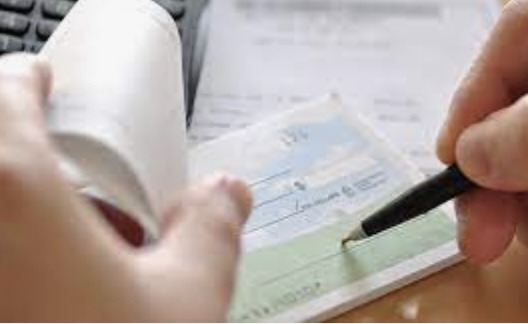When you look at the checks people use, you’ll see several different types. There are the business checks, the smaller checks, and the personalized checks. Each type has its advantages, but there is one commonality: they are much safer than cash.
Personalized checks are safer than cash
There is a reason why many people still write checks – it’s still an excellent financial product. Even with the increased popularity of credit and debit cards, checks are still a safe and convenient way to make payments.
The best part about checks is that they’re usually free. However, some companies may charge you a small fee for using your credit card. Plus, cash is only sometimes accepted everywhere.
Carrying personalized checks is also an excellent way to avoid carrying large amounts of cash. It is beneficial if you’re paying for a high-ticket item. In addition, checks can be returned if they’re lost or stolen.
Another benefit is that it can save you from lugging around a heavy wallet. Some companies also let you pay for your purchases by phone.
Millennials prefer tech to traditional avenues of employment
Millennials are the first generation to be born with a digital connection. They grew up with computers, the Internet, and digital media. They may be more tech-savvy than other generations, but they also want to connect with others and contribute to society.
Millennials often socialize in groups. They like flexible schedules and a variety of work options. They prefer working in teams. Some studies have found that Millennials are more comfortable with technologically mediated communication, such as Facebook and Twitter.
Despite these positive attributes, the Millennial generation has faced some challenges. They have been stereotyped as entitled, impatient, selfish, and disloyal. But savvy employers understand that this is not an accurate picture of Millennials.
Some savvy organizations are starting to adapt to Millennials. For example, some companies have created cool offices and embraced flexible schedules to attract top talent.
Personal checks are more professional than business checks
When it comes to business and personal checks, there are plenty of differences. The main one is the source of the money.
For personal checks, the source is the individual’s account. For business checks, the source is the company’s checking account. It means the business is liable for the checks drawn from the business account, not the individuals. Nonetheless, the name of the bank is usually written on the check.
Both types of checks are designed to be professional. Some people will add colors or characters to their checks. A business check is printed with the company’s logo and address.
While both types of checks can be used to pay bills, a business check is a more efficient way of doing so. It can be used for payroll, tax payments, and operating expenses. It also has the advantage of being safer than a personal check.
They’re not secured checks
Personal checks are slips of paper issued by a bank for use by a customer. These are not secured checks and may leave the bank owner with unwanted surprises.
Personal checks are helpful if a customer needs payment but needs more funds in their bank account to cover the amount. The bank will then transfer the money to the payee’s account. But the cost of obtaining a check is costly.
You should consider a third-party vendor offering secure checks if you need to order a check. Make sure the company you choose offers checks with features such as a security screen or magnetic ink character recognition font. This feature will help prevent counterfeiting and reduce the risk of fraud.
They’re smaller than other types of checks
There are several checks to pick from, whether you operate a small business or want to make payments. To choose which type is ideal for you, you must first learn the advantages and disadvantages of each. Here are a few types of checks to consider:
Personal checks are issued by a bank or credit union, instructing the bank to transfer money from your checking account to the person you write the check to. They also include a check routing number and the payee account number. Often, these checks are smaller than other types so that they can fit in your wallet.
Some people still use paper checks for paying rent or purchasing Girl Scout cookies. However, there are many ways to make payments that don’t involve paper, such as peer-to-peer payment systems. It allows for faster, more secure payment methods.

